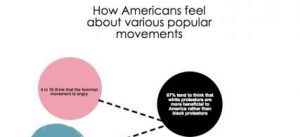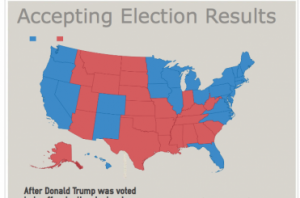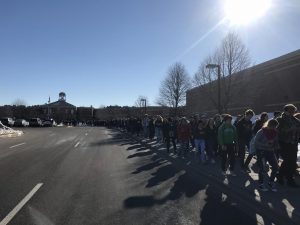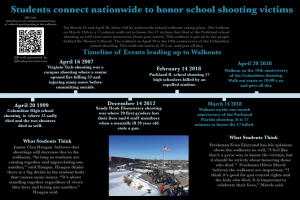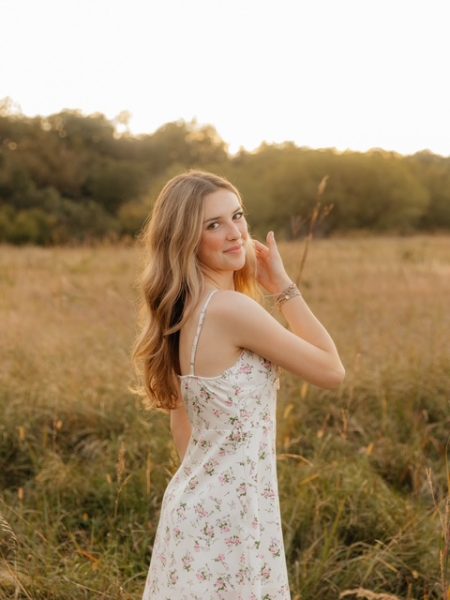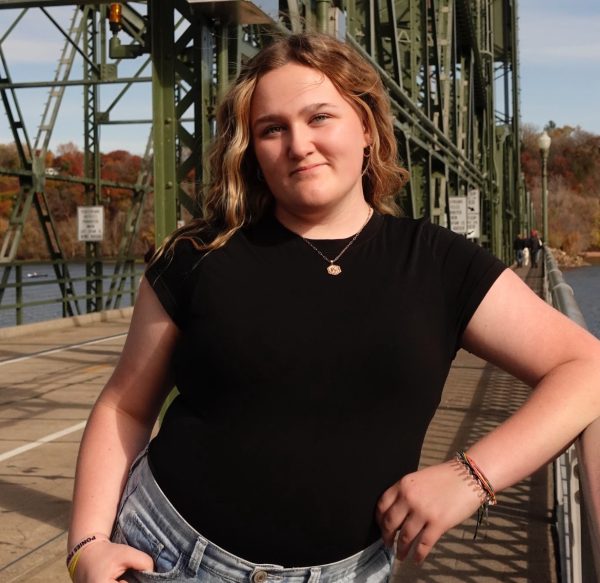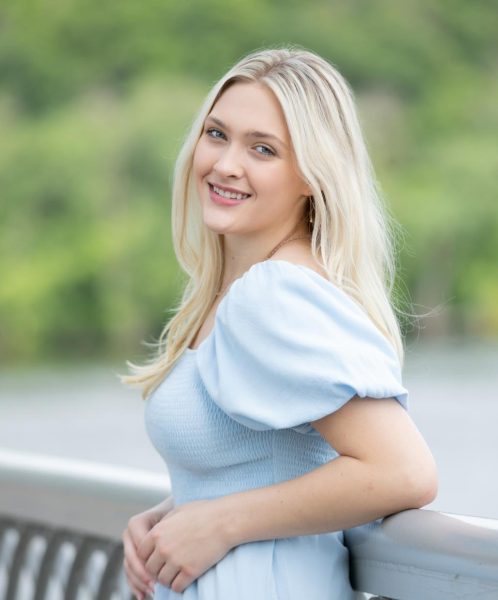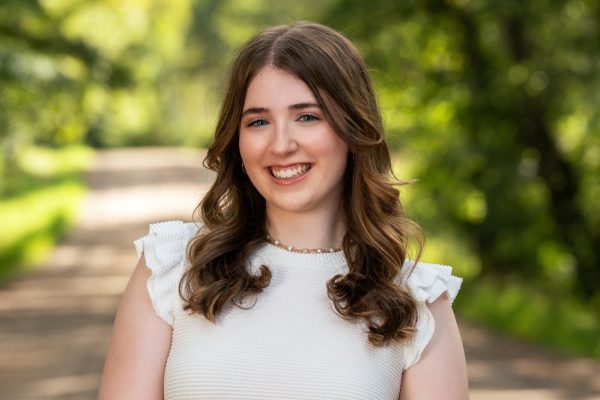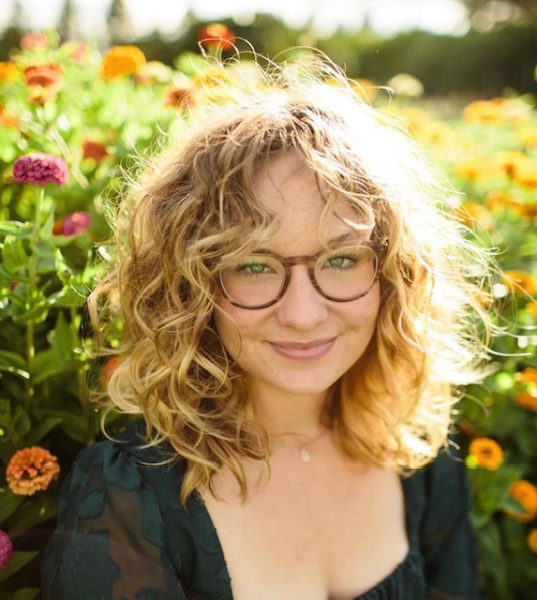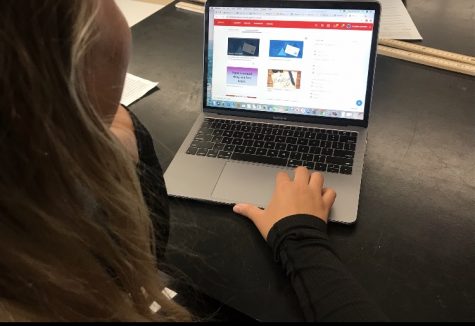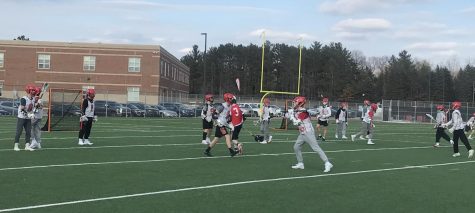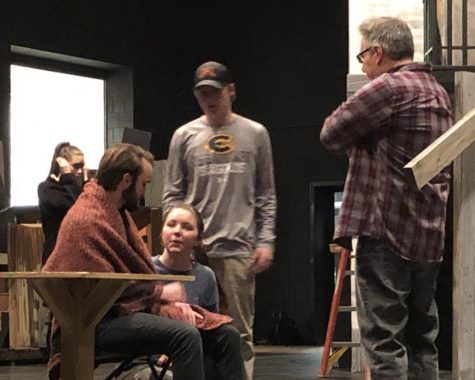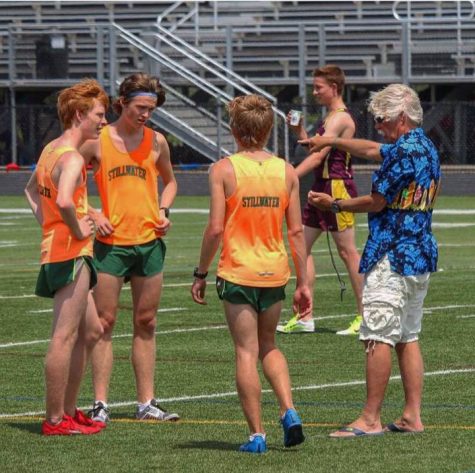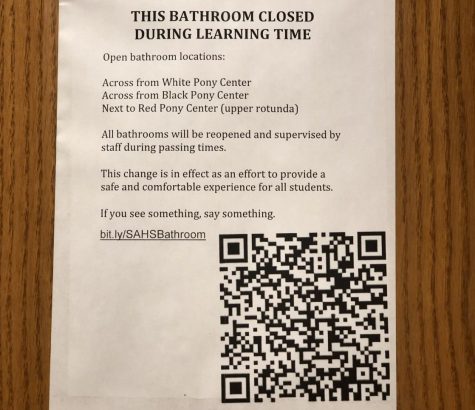EIC Column: marching makes a major difference
Dating all the way back to 1941, marching in protests on the streets of Washington D.C. (among many other state capitols) have become highly publicized, popular events, especially in recent years. These types of protests are extremely important in today’s society, as they were since 1941, and actually do make major political, social and economic change.
The first march to ever take place was in protest of the segregation of the armed forces and for the unfair opportunities in the workforce for African American men, titled The March on Washington Movement (MOWM). More notable marches include the March on Washington for Jobs and Freedom in 1963 where Rev. Martin Luther King Jr. gave his famous “I Have a Dream” speech, the March on Washington for Lesbian, Gay, and Bi Equal Rights and Liberation in 1993, and most recently, the Women’s March in 2017.
On March 24, March for Our Lives took take place in over 488 places across the USA. After the recent school shooting in Parkland, FL, this event was created to protest the current gun control laws.
Marching, or protesting in general, is extremely important. Not only does it grab politicians’ attention, it also sparks a chain reaction. When a protest is formed by a few, they are joined by several others. This causes others to become more politically active in their communities, states and even the country.
An article from qz.com explains this phenomenon. “The researchers argue that this was not the result of the actual protest, but of the way it motivated attendees. If the protest itself made the difference, they point out, then the effect of a larger protest would dissipate over time as policymakers forgot about it. What actually happened was the opposite: The difference in political outcomes actually increased over time. Larger turnout for the initial protest had lasting effects on voting, political contributions, ideology, and future participation in the Tea Party movement,” the article stated.
Recent discussions, protests and the march are led by students, especially by those from Marjory Stoneman Douglas High School, who are currently well known for standing up to gun violence like Emma Gonzalez, Cameron Kasky and Ryan Deitsch. These students are paving the way for others just like them in other high schools around the country, and are influencing other young people to create change in their communities. It is plainly obvious that now is the time for students to take action, and be as influential as older generations, if not more.
“I think it’s so powerful for kids to show that many of the myths and the paradigms that older generations may have of them just aren’t true. I think kids have been politically active in many ways, more so than older generations; it’s just their political activism has been different. Here is a traditional form of activism that those older generations can see and connect with and realize that this young generation is just as politically active and I would argue more so if we look at the broad based ways that they’re participating in their government,” social studies teacher Roger Stippel said.
When events such as massacre in a school, concert venue or club are personal, they stimulate the need to advocate for change, which creates an amazing and powerful result. If 16, 17, and 18-year-olds can organize millions of people worldwide to rally against the current gun control laws, students can make a major difference in their own backyard. It is obvious changes must be made, and protesting, marching, discussing and activism are the best way to do so.
“I think protests are about awareness and to make a statement to our democratically elected leaders that this matters to us. This is not off our radar. You need to take action,” Stippel said.
People need to be politically active in order for change to take place. Protesting and marching on the streets of Washington can only influence how others think in a positive way. Be active, march, protest, rally, and maybe the world will change.
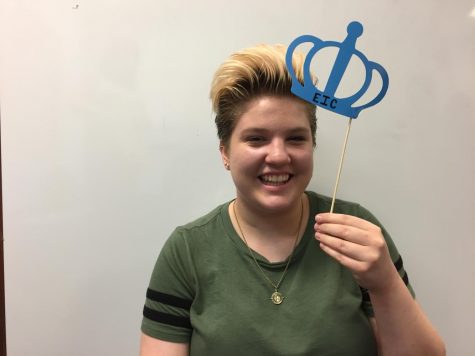
Ellie Faeth is a senior and a Print Editor-in-Chief of the Pony Express Newspaper. She enjoys writing, watching movies and singing in Belle Chanter...




